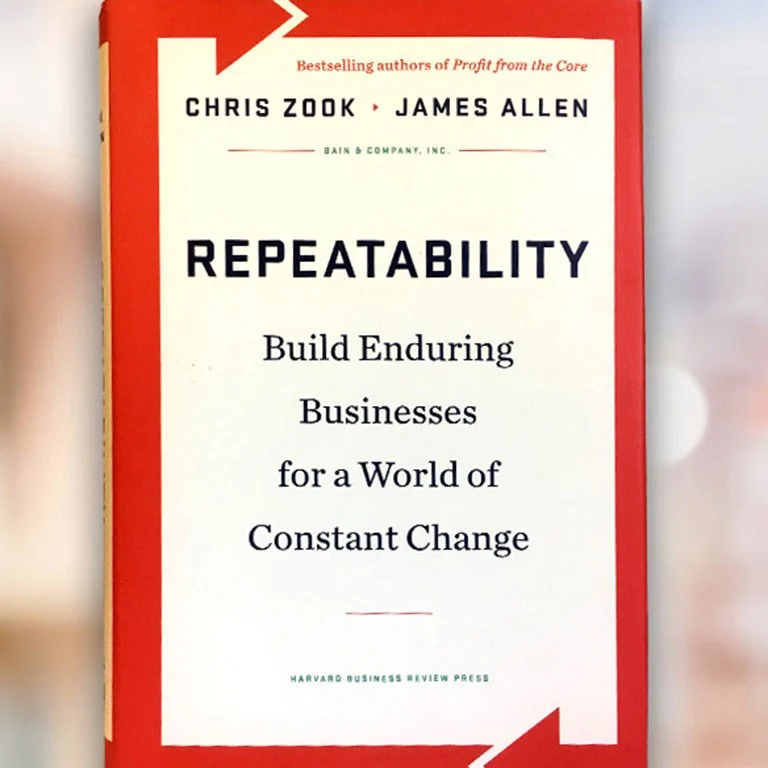HBR.org
The following post originally appeared on the Harvard Business Review Blog Network.
Anheuser Busch InBev (AB InBev) announced its annual financial results this month and they are impressive, especially for a company with roots as a small brewer in Sao Paolo, Brazil. Now the largest beer company in the world, AB InBev reported a double digit EBITDA growth rate and almost 30% growth in earnings per share.
And yet, in announcing those numbers, management confessed: "We know we can do better. A fundamental part of our culture is never entirely being satisfied with our results: we always challenge ourselves to dream bigger and achieve more."
That's AB InBev in a nutshell: a relentless focus on achieving bottom line results, coupled with a 'desire to dream.'
Observers tend to overlook the "dream" talk and chalk up AB InBev's extraordinary success to its relentless cost cutting culture. But they're only seeing part of the story. ABI's success is the result of a shared dream — a set of nonnegotiable beliefs that everyone in the company lives by.
To understand what made AB InBev—a descendant of multiple mergers and acquisitions—the success story it is today, let's trace the lineage of this 'desire to dream' through its complex family tree.
In 1989, a group of investors led by Marcel Telles purchased Brahma, then the number two brand of beer in Brazil. Telles and his team built the brand, took over the number one slot, and in 1999 combined with their chief competitor to form AmBev.
Expanding rapidly throughout South America, AmBev soon became the third largest brewer in the world. In 2004, the European beer company Interbrew, itself a product of several mergers, acquired a majority stake in AmBev, creating InBev. In 2008, InBev bought Anheuser-Busch, the leading US brewer. The result was AB InBev.
These acquisitions, coupled with organic growth, naturally fueled a rapid rise in revenue for each combination. But what's most interesting is their meteoric increase in profits: Between 2000 and 2010, earnings before interest, taxes, depreciation and amortization (EBITDA) at the companies that now make up AB InBev rose at a compound annual rate of 38%.
A prime reason for the growth in profitability appears when you dissect the contribution of each party to the mergers. The Brazilian company AmBev, already at 20% EBITDA in 2000, increased its margins to a whopping 36% in 2003.
Something was working at AmBev.
Then Interbrew bought the company, and the effect was like yeast in bread dough: The EBITDA of the new company, Inbev, rose from 21% in 2003 to 37% in 2007. When InBev then acquired Anheuser-Busch, the combination had a similar effect. Anheuser's EBITDA in 2007, prior to its acquisition, was 23%. By 2010, the EBITDA of the combined company AB InBev had risen to 38%.
In our book, Repeatability, Chris Zook and I describe how companies with repeatable business models grow sustainably and profitably. The consistent, dramatic increases in profitability after each of these combinations—in AmBev, then in InBev, then in AB InBev—are evidence of a repeatable model at work.
AB InBev's repeatable model is built around 10 nonnegotiable beliefs. Only one of them talks about cost cutting. The majority focus on the kind of people, culture and ways of working that AB InBev believes are required to win. And it is not enough that top management believe in these ideas: What makes a repeatable model so powerful is that the employees on the front line believe in them too. Management and front-line employees dream the same dreams.
I've witnessed the power of these dreams on a number of occasions. While working in Brazil, we invited an AB InBev team (from the original AmBev) to talk to a client of ours about how they compete. Our client was amazed by their passion for winning. They spoke about how they "owned each city, each store and each shelf" and battled every day to beat the competition.
AB InBev's executives devote a lot of time and energy to fostering this culture. As one manager said, "We create restaurant owners, not waiters." When we looked perplexed, he explained: "If you're a restaurant owner and a new restaurant opens across the street serving the same food, how do you feel? You feel like someone is putting your livelihood at risk, threatening you, threatening your family. It's personal, because the restaurant is your dream. But if you are a waiter and a new restaurant opens across the street how do you feel? At best, indifferent. Actually, there's now competition for your services. Many companies inadvertently create waiters. We work tirelessly to create restaurant owners."
Repeatable models all share some specific design principles. One, as I described in an earlier post, is that these companies focus on their true source of differentiation. Another, as clearly seen here, is that they embed nonnegotiables: Management and front-line employees work together to define how they compete and behave.
These routines—routines that reflect the company's differentiation and are supported by widely understood nonnegotiables—have incredible transformational power. They ensure that strategy doesn't end at the boardroom, but is embedded in the daily actions of each employee.
The story of AB InBev—a firm that creates "restaurant owners not waiters"—is one of the most powerful examples of this we've found. It demonstrates how a seemingly soft idea like a dream can create hard results: share gain, margin improvement. And it shows how a repeatable model built a small Sao Paolo-based brewer into a global leader.
James Allen is a partner in Bain & Company’s London office and coleader the firm’s Global Strategy practice. He is coauthor, with Chris Zook, of the book Repeatability: Build Enduring Businesses for a World of Constant Change (HBR Press, March 2012).

Repeatability
Learn more about how executives use Repeatable Models® to build enduring businesses.